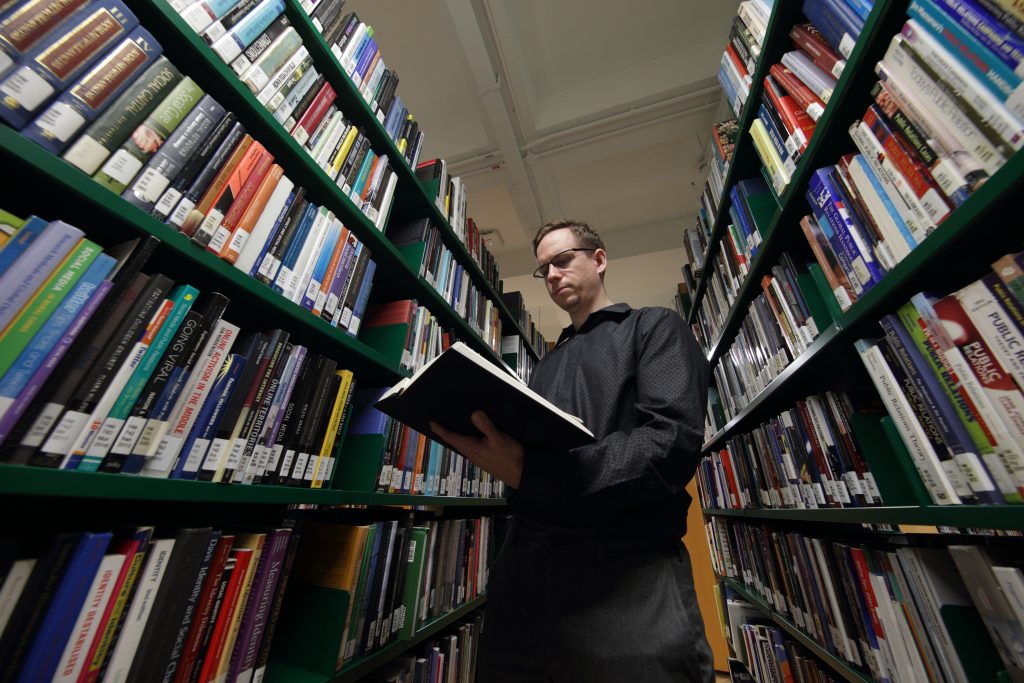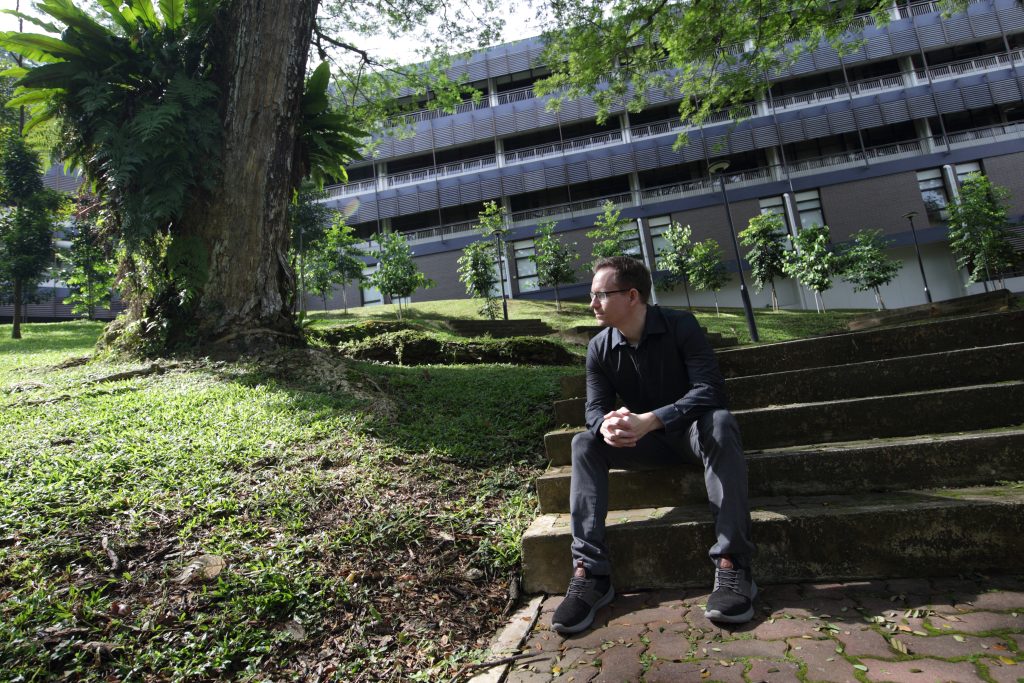Tackling 21st-century Problems with Age-old Philosophy
April 13, 2022
IN BRIEF | 10 min read
- Presidential Young Professor Abelard Podgorski (NUS Philosophy) explores diverse topics in his philosophical and mathematical thought, and can cast new light on problems and solutions in almost any discipline.

In school, he loved to get into discussions with his classmates about any topic under the sun. But there was one thing he really hated - losing an argument when he could not find a convincing line of reasoning.
So much so that he decided to give up his filmmaking ambitions to study philosophy and mathematics, where he could argue to his heart’s content and express his logic in rigorous equations.
“I felt really uncomfortable when people asked me questions and I didn’t know what to think about it or didn’t have a good reason for what I thought,” said Assistant Professor Abelard Podgorski at NUS Arts and Social Sciences, who was given the faculty’s 2020/21 Award for Promising Researcher and conferred the NUS Presidential Young Professorship in 2021. “It was this itch I had to scratch, and I felt philosophy was the only field that really scratched that itch - trying to convince people that something was right and giving the best argument.”
Making decisions in a complex world
The ability to formulate logical arguments helps a lot when one needs to make a decision with multiple options and uncertainty about the future. This is in fact one of Asst Prof Podgorski’s main research topics - he gives an example of choosing between becoming a professor and becoming a soldier.
It is generally thought that one should choose so as to effectively promote one’s values. For example, a soldier would value country and honour, while a professor would value knowledge. But sometimes, one’s decisions affect one’s values themselves, making it hard to see how to live up to that principle.
The problem is multiplied when there are more than two options, such as choosing among professor, soldier, lawyer and banker. To simplify the problem, Asst Prof Podgorski proposes treating it as a tournament where the participants, or options, compete pair by pair instead of all at the same time. To pick a winner for the tournament, he borrows a principle from social choice theory about how to choose a winner in an election with many candidates.
These insights could benefit not only people’s personal lives but also society at large. It could help policymakers make decisions when those decisions might affect who the relevant stakeholders will be.
Growing up and living with philosophy
Asst Prof Podgorski was born in Poland, but his family moved to the United States soon after. His mother studied computer science there, while his father took up a professorship in mathematics and statistics.
What he did not know was that his father had studied philosophy at university. The two had frequent “philosophical” discussions at home, and the younger Podgorski got acquainted with the famous philosophers from his father’s books.
Since then, Asst Prof Podgorski has ranged far and wide in applying philosophical thought to social issues.
He has ventured into the often controversial realm of animal ethics, arguing that one’s decisions about what food to buy cannot prevent the suffering of animals without also preventing their existence. For this reason, one’s primary obligation is to make sure one buys meat from animals whose lives were overall worth living.
“My view is in the middle between people who think eating meat is totally ok and people who think eating meat is totally wrong,” he said. “It gives the animal activists something to say to meat eaters that they won’t reject totally. People really like eating meat. You can give them the strongest arguments why they should stop completely, but you’re not going to get any uptake that way.”
A meat lover himself, he has in fact taken the cue from his own analysis to eat more vegetables and cage-free eggs.
Another area Asst Prof Podgorski thinks philosophy can help people is in dealing with the sadness and trauma of losing loved ones. In metaphysics, a branch of philosophy that tries to understand existence, someone who has ‘passed on’ is just as alive but simply in another location in the four dimensions of space and time. He likes the philosophy of the Tralfamadorian aliens in the novel Slaughterhouse-Five. To them, in author Kurt Vonnegut's words, “all moments, past, present and future, always have existed, always will exist. The Tralfamadorians can look at all the different moments just the way we can look at a stretch of the Rocky Mountains.”

Much of philosophical thinking happens in one’s own mind, so Asst Prof Podgorski’s work has not been greatly affected by the isolation brought on by the COVID-19 pandemic. But even he is feeling the strain.
“I can work by myself and get research done, but it does get tiring after a while not interacting with people, even for me,” he said. “It’s really helpful to have some stimulation for ideas, like attending conferences. I didn’t appreciate how much that mattered in keeping my gears turning, having new inputs of thoughts and information.”
He sometimes indulges in the other path in life he did not choose - by watching movies. His favourites include 2001: A Space Odyssey, and In the Mood for Love by Hong Kong director Wong Kar-wai. Both feature thought-provoking plots that move very slowly, and cinematic imagery filled with beautiful patterns and colours.
Yet, Asst Prof Podgorski is itching for the next opportunity to attend a conference - and get into a face-to-face argument again.
This article first appeared in NUSNews on 13 April 2022.

